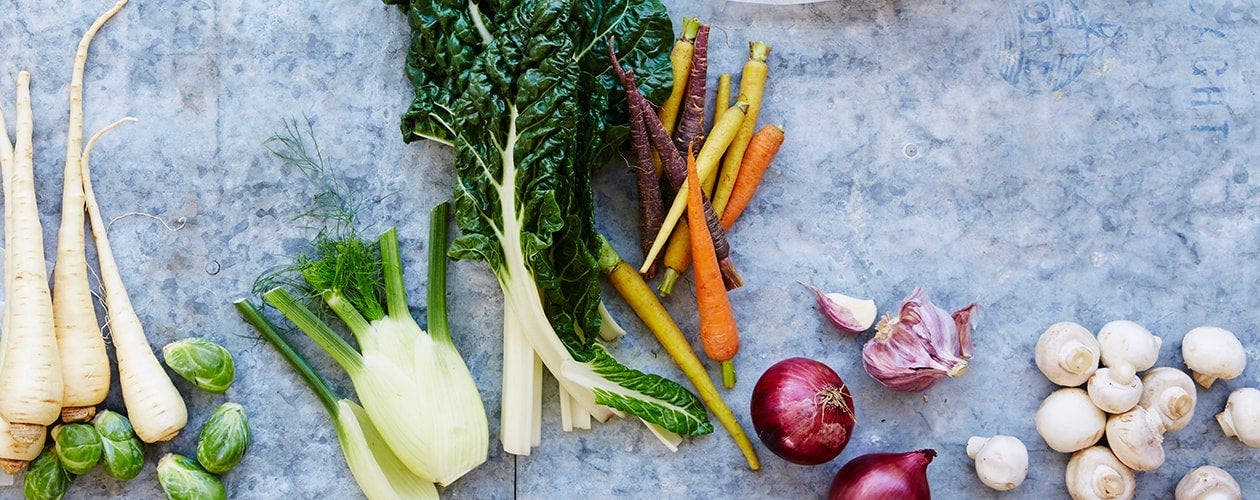4 nutrients you need


Essential nutrients
Despite our abundant food supply, many Australians are missing out on vital nutrients. The reasons range from not eating enough of certain foods, like seafood, and following a restricted diet, such as fad diets, which cut out whole food groups, to not getting the necessary nutrients during certain life phases, such as pregnancy. As well as eating a balanced, varied diet, pay attention to the following four nutrients in particular:
Calcium
Why?
It’s essential for bone health and is also required for the proper functioning of the neuromuscular and cardiac systems.
Who?
Less than two-thirds of Australian men and just half of all Australian women meet the recommended dietary intakes (RDI) for calcium, which is 1000 to 1300 milligrams a day.
Where?
Dairy products are an excellent source of calcium – convenient and easily absorbable. Skim, reduced-fat and low-fat varieties are great daily choices as they contain fewer kilojoules and Points and usually have higher amounts of calcium than full-fat products, too. Certain milks and yoghurts (and even breakfast cereals and orange juices) contain added or boosted calcium. If you’re lactose intolerant or have a food allergy, choose calcium-fortified soy foods, edible bones in small fish such as sardines, green leafy vegetables and, to a lesser extent, nuts and seeds.
Vitamin D
Why?
This important vitamin assists with calcium absorption and helps build strong, healthy bones. It may also play a role in immunity, cardiovascular health, insulin responsiveness and diabetes.
Who?
A significant number of Australians may have lower than optimal vitamin D status, reports the Australian National Health and Medical Research Council. Those most at risk include people confined indoors (think the elderly in residential care) and people who cover their skin for cultural or religious reasons. If you work in an office job or spend little time outdoors during the day, you may also be prone to vitamin D deficiency.
Where?
Good dietary sources of vitamin D include oily fish like sardines, mackerel, salmon and tuna, eggs, fortified foods like margarines and milks, plus red meat. Wild mushrooms and new varieties pulsed with UV light are an excellent source of vitamin D, too. But regular, indirect sun exposure remains the best way to top your vitamin D levels up. Just remember that it’s crucial to practice good sun-smart behaviour, to avoid skin damage and increased risk of skin cancer, caused by unsafe exposure to the sun’s rays. A handy resource is How Much Sun is Enough? Getting the Balance Right – Vitamin D and Sun Protection, available for download from the Cancer Council website. Head to www.cancer.org.au for more information.
Iron
Why?
Iron is necessary for the production of haemoglobin, which carries oxygen around the body. It also plays a role in immune function. Most people appreciate that low iron levels can cause tiredness, but it can also lead to poor concentration, irritability and frequent infections.
Who?
Low iron levels have been reported in up to a third of Australian women. Emerging evidence suggests obesity reduces absorption of iron, and a higher prevalence of iron deficiency has been reported in overweight groups. The recommended daily intake for 19- to 50-year-old women is 18 milligrams a day, which increases to 27 milligrams a day during pregnancy.
Where?
The most readily available and absorbable dietary source of iron is lean red meat. You don’t need to eat massive amounts – dietary guidelines recommend a palm-size serve three to four times a week for most adults. You can boost iron absorption from plant sources like spinach by pairing them with a vitamin C source like fresh tomato, orange or capsicum. Also, look out for foods fortified with iron, such as certain breakfast cereals.
Iodine
Why?
Iodine is used by the thyroid gland to make two hormones called T3 and T4. These hormones influence growth and metabolism of the entire body and are particularly important for the development of the brain and nervous system of babies in utero.
Who?
Research from the National Iodine Nutrition Survey indicates the Australian population is mildly deficient and not meeting the required 150 micrograms a day. This requirement rises to 220 micrograms a day for pregnant women and 270 micrograms a day when breastfeeding.
Where?
Fortified bread, dairy and seafood are the main dietary sources of iodine in Australia. To give your baby the best start in life, it’s recommended you take an iodine supplement (along with folate), containing 150 micrograms of iodine before conception and during pregnancy and breastfeeding.
Nutrition in New Zealand
The latest New Zealand Adult Nutrition Survey demonstrates that both men and women are missing out on several key nutrients, including potassium, zinc and vitamin A. Iron deficiency levels have jumped in women, and nearly 60 per cent of those aged over 15 get too little calcium from their diet. Iodine and vitamin D are also back on the radar, just like in Australia.
